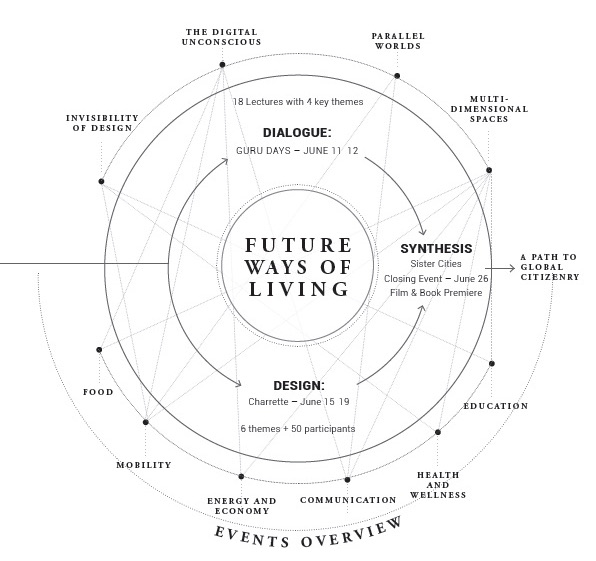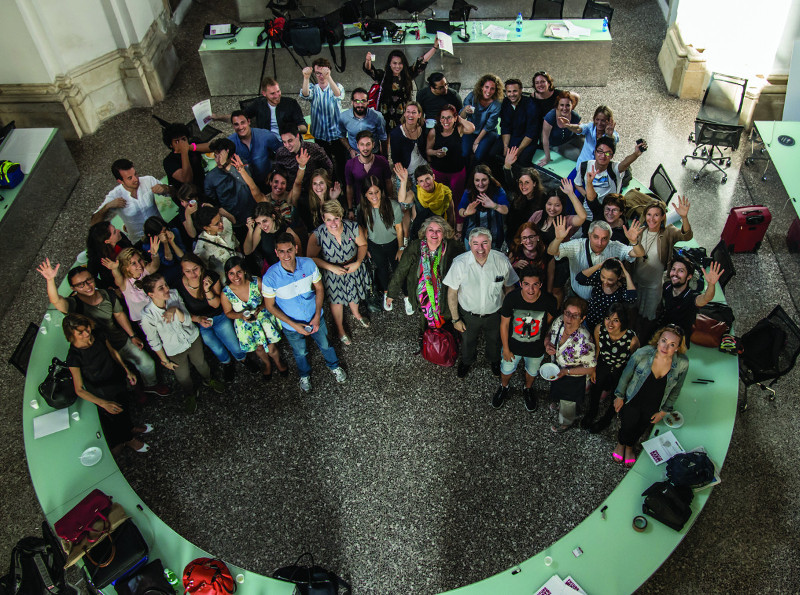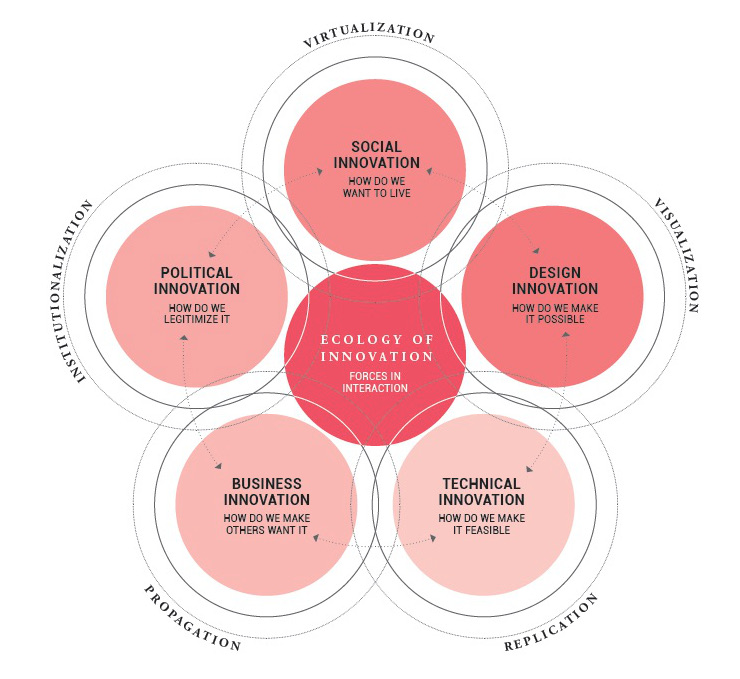Post
Future Ways of Living ora è un libro. Scoprilo in anteprima
Six months away from the Special Edition the book Future Ways of Living (24ORE Cultura, € 30) is ready; the book outlines the ideas and contributions by, among others, Lawrence Lessig, Carlo Ratti, Don Norman, Paola Antonelli, Luigi Ferrara, Derrick de Kerckhove in answering the question “what will life be like in the next ten years?” the main issue of the international event held last June at Mediateca Santa Teresa.
A few weeks from its launch, we’d like to show a preview of the book. The volume stands out for a design focused on the visual side through plenty of images and infographics and is co-signed by Meet the Media Guru and Institute Without Boundaries | George Brown College, Toronto, the minds and partners of the project, in a collaborative effort between Milan and Toronto that has strengthened the collaboration between the two cities since 2003.
In its three hundred pages, Future Ways of Living (FWL) traces back the evolution of the initiative envisaging how the global village of 2025 will be connected, efficient, smart, economically sound and socially responsible. The book, written in English, is divided into three acts – Dialogue, Synthesis e Design – because three are the steps through which the laboratory on international innovation has taken shape, as shown by the graphic below.

The first act consists of the Guru Days a two-day event with talks involving 18 international experts (the full list of guests is available here) who outlined the framework of relevant technology changes: from robotics to e-democracy, through artificial intelligence, augmented reality, Post Cities and the digital economy. The Gurus told us in which direction we’re going, giving us “long-term signs, those that go beyond single gadgets, technologies or trends”, as effectively explained by Nicola Bruno on Medium. The book puts together these “visions” and present them in the form of highlight for every single guest.
Among the pages of Future Ways of Living, the second act is the Charrette, a participatory design laboratory that followed the Guru Days and saw the interaction between an international team of architects, engineers, designers, teachers, Expert Advisors and students in a spirit of global collaboration.

La Charrette managed to develop projects that, in answering the question “How do we want to live?”, identified technologies and models able to reach the target. Leading the work of the 6 groups – Energy and Economy, Health and Well-being, Education, Communication, Culture, Food and Mobility – was the diagram Ecology of Innovation (picture below) designed by the Institute without Boundaries, which described the ways change can be envisaged, become possible and replicable thanks to the support of technology, ultimately turning into business and end up as an institutional phenomenon.

The third act of the book comprises of 6 projects conceived thank to Future Ways of Living. All the scenarios are characterised by two foundational elements: sharing and connectivity, as we wrote in this post of 22 June. Whether we envisage a Seamless Complete Mobility, literally a full, uninterrupted mobility or a model making our way of working more productive and sustainable, or again a Cloud Health ensuring holistic and diffused healthcare sharing and connectivity – obviously not just in technological terms – are all elements of paramount importance.
In presenting the single projects with the support of a theoretical introduction and extensive graphic material, the volume sets the challenge for the next 10 years. A true process towards global citizenship is required, one which overcomes single geographic divisions by offering global access to services that have become more and more vital for every human being. FWL envisages a future where digital crowding is overcome by clustering functions and creating “holistic”, smart systems capable to provide diverse solutions to the needs of all users. If this will be the case, the benefits will be reaped by a wider set of people thanks to the interaction between technology and social innovation.
Future Ways of Living, which is now a book for those who keep asking questions even though they do not have all the answers, will soon become a one-hour documentary filled with interviews to gurus and the participants to the Special Edition, summarised below.
